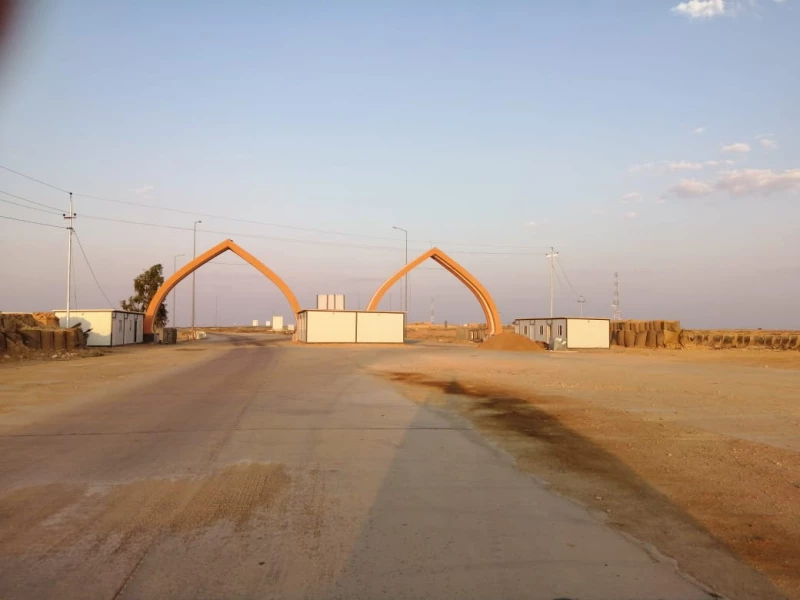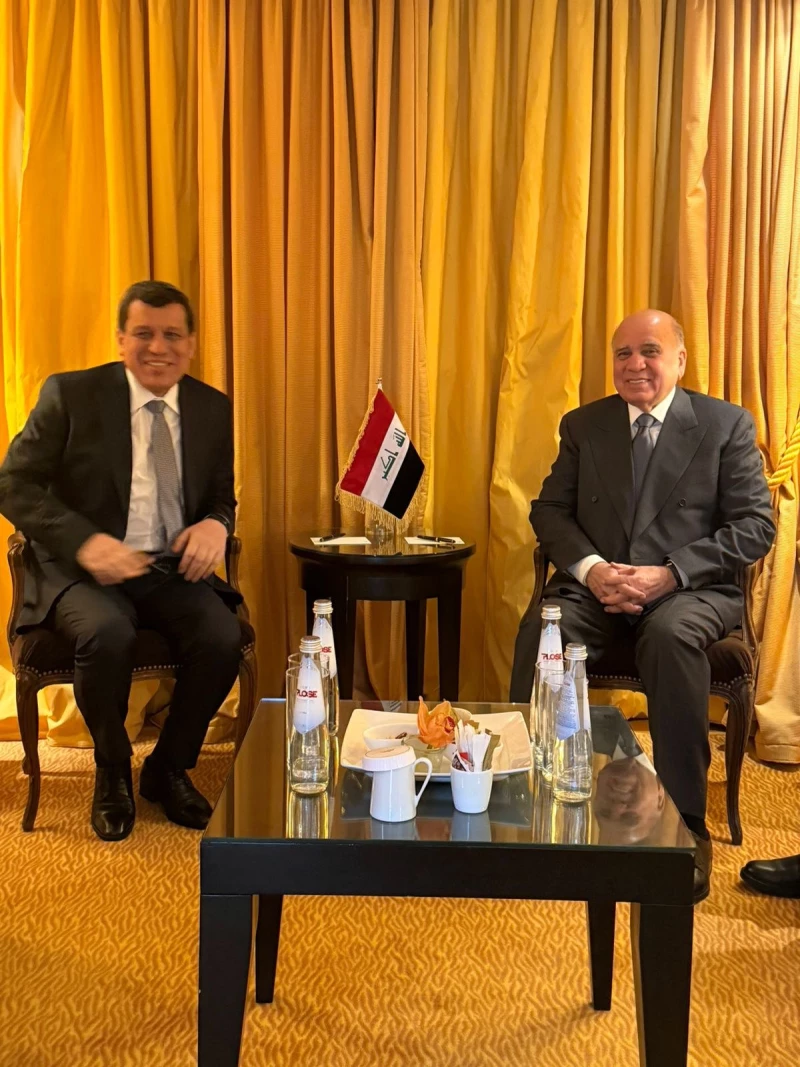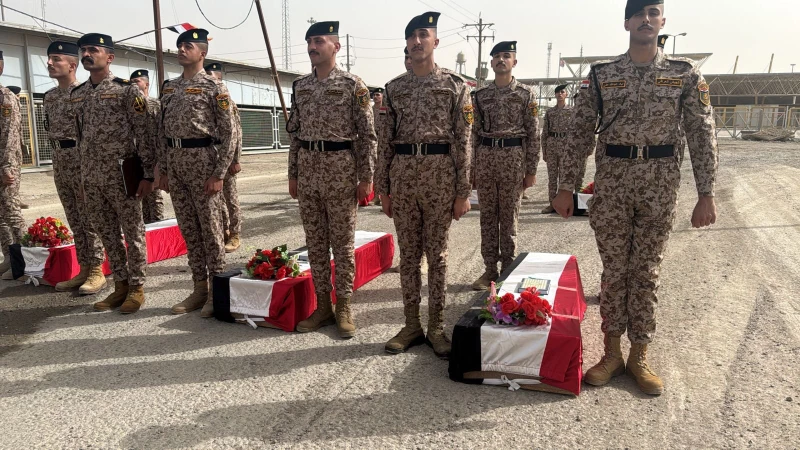BAGHDAD, Iraq - The reverberations of the political unrest that grippled Iraq in the fall of 2019 still linger in the air, casting a shadow of tension and uncertainty over the nation. Widespread protests erupted across numerous provinces, resulting in hundreds of casualties and thousands of injuries. Yet, those political entities aiming to quell the uprising and move past this turbulent chapter have found themselves entangled in internal discord and grappling with the enduring demands of the demonstrators.
Despite claims of restored "stability" and assurances of an improved reality, successive shocks serve as stark reminders that the mere suppression of dissent and the absence of substantive reforms could plunge the nation into a state of precarious calm—a facade easily shattered, with consequences beyond containment.
The wave of popular protests culminated in the ascent of former Prime Minister Mustafa al-Kadhimi in 2020, heralded as a leader poised to oversee the long-awaited early elections demanded by Iraqi demonstrators.
However, his tenure fell short of addressing the systemic issues hindering political, constitutional, and democratic advancement in the country.
While elections did take place in October 2021, many Iraqis held high hopes that the outcomes would mirror the demands voiced during the protests.
However, the anticipated electoral shift reflecting the protesters' demands failed to materialize.
Instead, traditional political factions aligned under the Coordination Framework suffered a loss, while Muqtada al-Sadr, leader of the Sadrist Movement, emerged as the initial victor.
Sadr forged an alliance dubbed the tripartite alliance with the Kurdistan Democratic Party (KDP) and the Sunni Taqaddum Party, advocating for what was then termed a "majority government”.
Yet, opposition from the defeated traditional forces nearly plunged the nation into civil strife. Tensions escalated with clashes erupting at the gates of the Green Zone and frequent rocket attacks targeting the area.
Sadr eventually retreated, paving the way for the "losing forces" to coalesce and form a government led by Prime Minister Mohammed Shia' al-Sudani. This marked a decisive blow to the protesters' aspirations, effectively halting any political momentum following the clashes and rocket assaults.
During his inaugural press conference in November 2022, Prime Minister Sudani reaffirmed his administration's readiness to conduct early elections should the parliament opt to move forward with the initiative "in accordance with the current political consensus.”
These statements were carefully observed by both factions within the Coordination Framework and Sadr's movement, with hopes that Sudani's stance might encourage Sadr's reengagement in the political arena or perhaps prevent the ousting of the Framework Government amid anticipated public demonstrations.
Sadr retreated entirely from the political stage, making sporadic appearances only on religious occasions. His apparent detachment from unfolding events left many to speculate, and discussions about early elections were noticeably absent.
It was widely assumed that the Sudani government would persist until the conclusion of the parliamentary term in 2025. However, recent discussions about early elections indicate growing apprehension within the Coordination Framework, suggesting that the touted stability may be more precarious than previously suggested.
This resurgence of election talks serves as a poignant reminder that the echoes of protester demands in Iraqi squares continue to reverberate through the political landscape, underscoring the urgent need for substantive political reform, as observed by many analysts.
Iraqi politicians are increasingly framing early elections as "inevitable and non-negotiable," with discussions revolving around the possibility of holding them either by the year's end or at the outset of 2025.
Adnan al-Zurfi, the Secretary-General of the "Kafa" Movement and a prominent political figure, emphasized this stance during a recent television interview.
The Coordination Framework is worried about its former allies
The resurgence of discussions surrounding the notion of "early elections" within a government seemingly devoid of internal opposition from parliament or other institutions, alongside heightened political activities on the ground, has left many observers puzzled.
According to writer and journalist Ziya Walid, the reintroduction of this idea could serve as a "gesture, a threat, or a conveyance of specific political messages."
However, Walid underscored that the pivotal aspect lies in understanding its underlying implications.
"Early elections typically arise amidst crises,” he said.
In Iraq's context, they unfolded following a popular uprising backed by the highest religious authority and further propelled by a major party's skepticism regarding the government's impartiality.
"Presently, crises – such as those with the Kurdistan region and Mohammed al-Halbousi – have been precipitated by judicial decisions rather than governmental actions. Nonetheless, the government enjoys support from all stakeholders, including those directly impacted by these decisions," Walid emphasized.
Following the initial calls for early elections by protesters and subsequently by Sadr, prior to his withdrawal, the shift towards this demand being championed by the Coordination Framework forces, who not only formed the government but continue to lend it support, raises pertinent questions.
In a concise conversation with researcher and academic Akeel Abbas, one such question was posed: What precipitated this change in stance, and what factors are now driving these established political forces to advocate for early elections?
Abbas highlighted a prevailing sentiment within the Coordination Framework, expressing apprehension over the emergence of new forces that have historically been aligned with its interests.
The Coordination Framework's apprehension deepened notably following the outcomes of Iraq's provincial council elections held in December 2023.
This unease stemmed from the ascension of three governors—Asaad al-Eidani in Basra, Nasif al-Khattabi in Karbala, and Mohammed Jameel al-Miyahi in Wasit—who have demonstrated a capacity to mobilize independently of the Framework.
Such autonomy poses a significant concern for the Framework, as these governors could potentially bolster their support bases by forging alliances with additional governors.
This, in turn, may enable them to garner broader public appeal within their respective provinces upon establishing local administrations.
Abbas did not discount the possibility that governors who secured substantial votes could forge a fresh political coalition with incumbent Prime Minister Sudani.
This speculation gains traction given the Iraqi government's considerable economic prowess, buoyed by surging oil prices. With both the central and local administrations wielding significant economic resources, they possess the capacity to effect tangible change through strategic resource allocation.
According to Abbas, Sudani might offer the Iraqi public "either legitimate services or questionable inducements," thereby bolstering his political standing and aligning himself with factions that have distanced themselves from the Coordination Framework. These factions are seen as influential entities within Iraq's local power structures.
Walid concurred with Abbas regarding the Coordination Framework's apprehension over the "ascendancy of the three governors." The current electoral process enabled them to secure the highest number of seats in the provincial council, prompting concerns among certain factions within the Coordination Framework about replicating this scenario in the forthcoming parliamentary elections at the regional and national levels.
We attempted to reach out to several parliamentarians to gather their perspectives on the proposal for early elections. Independent MP Sajjad Salem, among others, expressed the view that "early elections are presently unnecessary and merely exacerbate political tensions among the coordinating factions, given their existing competition."
In Salem's view, the Coordination Framework factions are apprehensive about "Prime Minister Mohammed Shia' al-Sudani's intentions to partake in the forthcoming parliamentary elections. The essence of this election proposal is to secure the Prime Minister's ongoing role within the context of the Coordination Framework."
Looming presence of the Sadrist Movement, the Kurds, and the Federal Court's decisions
The Coordination Framework perceives the Sadrist Movement, under Sadr's leadership, as a "time bomb," according to Abbas.
Any political setback or public grievance could potentially be exploited by the Sadrists, perpetually keeping the framework on edge. With the unpredictable nature of the Sadrist movement's actions, as elucidated by Abbas, waiting for the scheduled elections in a year and a half seems untenable for them.
In recent weeks, there has been a flurry of discussions surrounding potential changes to the electoral law, spurred by the reinstatement of the Sainte-Laguë electoral system in April 2023, which effectively abolished the single electoral district system.
This shift has reignited calls to amend the law and revert to a multi-district format, a sentiment repeatedly echoed by Nouri al-Maliki, the head of the State of Law Coalition.
Even though there is a lack of overt discourse, according to Walid, the specter of the Sadrist movement and the electoral law may be looming in the background.
Sadr, the leader of the Sadrist movement, has remained largely absent from the political scene since August 2022. This withdrawal came after the collapse of his push for a "majority government," which coincided with clashes near the Green Zone.
Many observers attributed this turn of events to decisions made by the Federal Court, which disrupted the political landscape and led to the dissolution of the "tripartite alliance" that had aimed to form the government as the predominant force.
The "tripartite alliance," composed of the Sadrist Movement, the KDP under Masoud Barzani's leadership, and the Taqaddum Party led by Halbousi, encountered obstacles due to the ongoing rulings of the Federal Supreme Court.
In recent months, the Federal Supreme Court made significant rulings, including the termination of former Parliament Speaker Halbousi's membership.
Additionally, it issued decisions that stirred discontent in the Kurdistan Region, such as resolving appeals related to the Kurdistan Parliament election law and addressing issues concerning the salaries of Kurdistan Region employees.
These actions sparked extensive debate about the court's "political role," leading Kurdish Judge Abdulrahman Salih Zebari to resign from his position, citing the court's decisions aimed at "reverting to the centralized system," as per his statement.
In March 2024, the KDP voiced criticism against the decisions of the Federal Supreme Court, asserting that they signify a departure from the democratic principles in Iraq and a "violation of the provisions and articles of the constitution."
The intricate dynamics at play have heightened concerns within the Coordination Framework, particularly in the aftermath of the KDP's withdrawal.
The rulings of the Federal Supreme Court, coupled with the observations of Abbas, have significantly disrupted the region.
Sustaining this precarious balance until the scheduled date of the next elections, a year and a half away, presents worrisome challenges. Moreover, there's a looming sense that uncontrollable developments may ensue.
Abbas noted that "the Kurds wield independent sources of influence," and discussions surrounding early elections by the Coordination Framework serve to sidestep potential political rifts, particularly given the isolation of all allies of the Sadrist movement, formerly known as the "tripartite alliance”.
Presently, there exists a lack of equilibrium, with governance largely dominated by the coordination framework, instilling in them a constant sense of trepidation as they await potential reactions.
"If conducted"... the necessary conditions for election success are not met
The early elections conducted in Iraq in 2021 left many factions dissatisfied with what they perceived as the perpetuation of the political system's entrenched "sectarian and ethnic" divisions, impeding any prospects for revitalizing or rectifying Iraq's democratic trajectory.
Despite hopes that the 2021 elections would challenge the dominance of established major parties, such aspirations were left unfulfilled, fostering a sense of skepticism regarding the potential for future elections to effect meaningful change.
This skepticism prevails particularly if the structural conditions that characterized past electoral processes persist without alteration.
For numerous observers, such as Abbas, elections in Iraq symbolize a realignment of political factions vying for control over public funds and state resources.
Comparing elections in Iraq to those in established democracies is challenging, as the concept of a "peaceful power transition based on fresh governance ideas derived from popular will" remains elusive.
According to Abbas, the absence of essential conditions necessary for change remains a significant obstacle. He outlines two key prerequisites for successful future elections.
Firstly, Iraq requires a federal court that adheres strictly to constitutional principles, with all parties trusting its integrity and impartiality. Secondly, elections must result in a genuine transformation of governance, wherein the election winner assumes leadership.
However, Abbas noted that these conditions clash with the existing political establishment. The Federal Supreme Court enjoys backing from the dominant Coordination Framework, and political consensus, rather than electoral mandates, dictates governance.
Moreover, according to Walid, the timing of early elections holds significant weight.
He contends that if elections are not conducted promptly, holding them six or seven months before the current parliament's term concludes would render them meaningless in terms of being “early”.
Many analysts argue that the 2019 protests in Iraq were fueled by discontent with a government they deemed “non-representative”.
Former Prime Minister Adel Abdul-Mahdi, his successor Mustafa al-Kadhimi, and Mohammed Shia' al-Sudani all assumed office through "consensus" rather than direct election.
This arrangement spurred protesters to demand early elections, a call that remains unmet, echoing the prolonged electoral processes seen in Iraq since 2005. The underlying grievances that sparked the largest protests in modern Iraqi history persist, underscoring the futility of resolving crises through established norms or consensus.

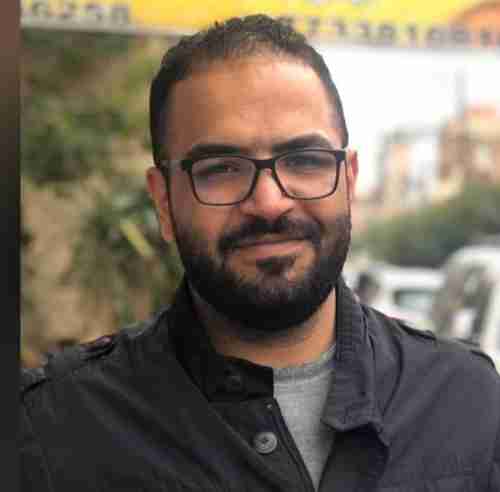
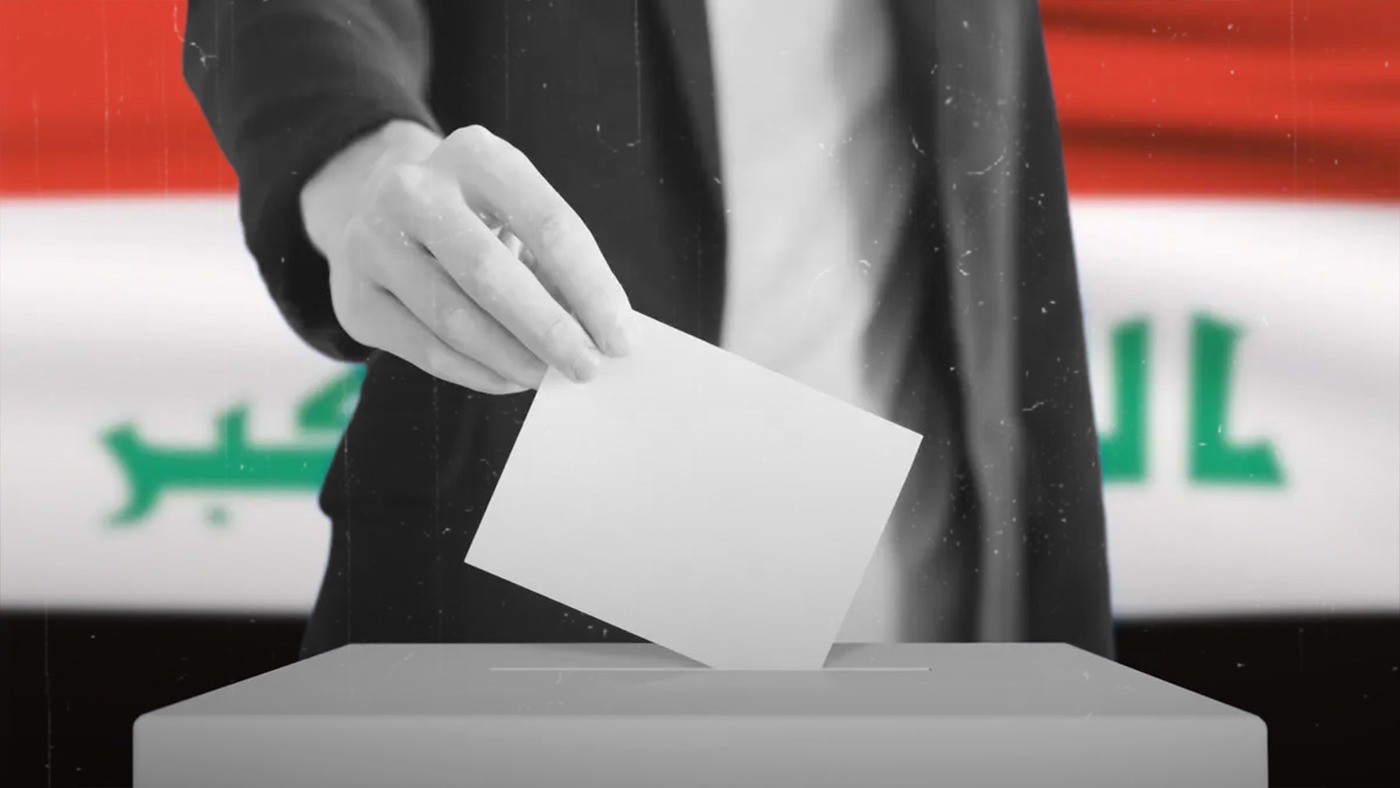
 Facebook
Facebook
 LinkedIn
LinkedIn
 Telegram
Telegram
 X
X
